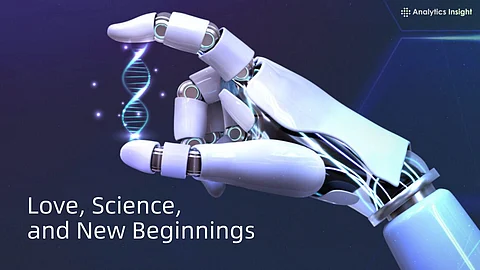

After 19 years of failed attempts to start a family, despite 15 IVF procedures, a couple has finally become pregnant. This is due to STAR, a pioneering artificial intelligence system.
Created by researchers at Columbia University Fertility Center, the Sperm Track and Recovery (STAR) system has enabled the couple to become pregnant despite the husband having been diagnosed with azoospermia. In this condition, no sperm can be found in the ejaculate.
Similarly, the way astrophysicists employ AI to identify remote stars, the STAR system employs an AI-driven algorithm to determine “really, really, really rare sperm” that even skilled embryologists may not see.
“I compare it to looking for a needle buried in a thousand haystacks,” explained Dr. Zev Williams, creator of STAR and director of the Columbia University Fertility Center, in an interview with Time Magazine.
This AI pregnancy method starts with a fluidic chip, into which the semen sample is slowly released. After the AI identifies sperm within a fluid segment, that fraction is redirected into a secondary tube. The individualized sperm can be used for fertilization or stored in the freezer for later use.
To check its ability, scientists tested semen samples where embryologists could not detect any sperm, not even after two days of testing. The STAR system detected 44 sperm within an hour from the same sample. “The embryologists worked very hard. They didn’t want to be upstaged by a machine,” said Dr. Williams.
In March of this year, the team took the husband’s semen sample and passed it through the STAR system. Two hours later, sperm were isolated successfully, and the wife’s eggs were fertilized that day.
A few days later, embryo transfer was done. The couple is now four months pregnant, and both the mother and baby are healthy.
Azoospermia occurs in approximately 1% of all men and accounts for 10% of male infertility. Reasons vary from obstructions in the reproductive tract to genetic conditions, radiation treatment, hormonal imbalances, or toxin exposure. So far, most such patients were informed that they had no chance of biological fatherhood.
This system can pick up and harvest even the lowest numbers of sperm without unfriendly chemicals or lasers. It employs a blend of AI, high-speed imaging, and robotics, and does it very gently,” explained Dr. Williams. The researchers now hope to further develop the STAR system to improve the number of IVF success stories.
Also Read: AI in Healthcare: How Smart Tech is Helping Fight Antibiotic Resistance
Dr. Williams sees a time when AI systems such as STAR will be able to revolutionize the prospects for infertile couples. “The vision is to create technologies so that people who are told ‘you have no hope of having a child’ can go on to have healthy children,” he explained.
